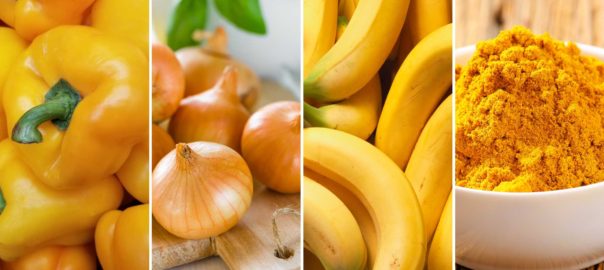Your gut is the key to health. In my years of working with clients I have learned that focusing on gut health often has a significant impact on the rest of the body. And when it comes to what you eat there are number of powerhouse foods that are a great addition to the diet. They’re nutritionally dense and the provide a number of different benefits.
I promote eating all colors of the rainbow, and avoiding the beige plan known as the Standard American Diet. I’m sure you’ve heard it before, how important it is to eat a colorful diet and a variety of foods. Interestingly enough everyone seems to focus on greens. I think there’s another color that deserves just as much attention as the greens. Yellow! When it comes to you and your gut, consuming more yellow foods is highly supportive.
What’s so special about yellow foods?
The carotenoids found in yellow foods are a naturally occurring pigment that gives fruits and vegetables their vibrant color. These carotenoids are also responsible for a number of different health benefits, one of which is improving the health of your gut.
Many of the yellow foods are, of course, nutrient dense and are a wonderful source of micronutrients and phytonutrients. A number of yellow foods are highly prebiotic, meaning they feed the good bacteria in your gut. They’re also known to have anti-inflammatory properties which can be supporting and calming for gut health. And if that’s not enough they’re also loaded with antioxidants like beta-carotene and Vitamin C. These antioxidants help protect your cells against free radical damage, good for your gut and for the rest of you.
A few of my favorite yellow foods
The foods listed below are healthy choices regardless of whether they are yellow, red, green, purple, etc. For the purposes of this article, however, I’m talking specifically about the yellow varieties.
Apples
The high levels of fiber, both soluble and insoluble, in an apple helps to balance blood sugar and well as supporting good digestion and elimination. Apples are also a good source of pectin, a water soluble fiber, that improves digestive health.
Bananas
Choose bananas that are more green as they are highly prebiotic and activate and feed your healthy gut bacteria. The riper a banana gets the more the sugars develop and the less prebiotic content they have
Bell Peppers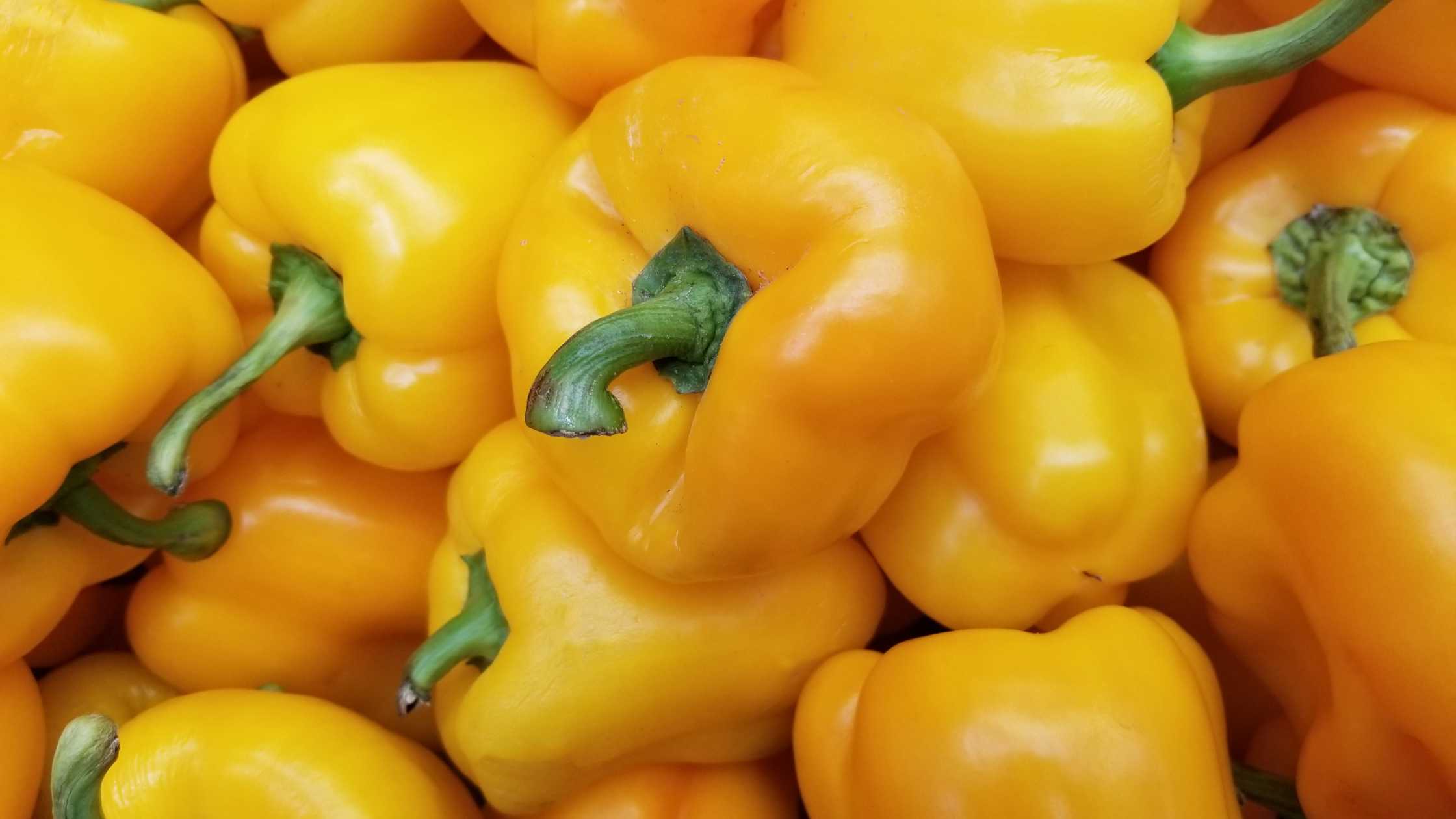
Another high fiber food, bell peppers are also a good source of vitamin C and potassium. The fiber is supportive for helping to create bulk and assist with heathy digestion and elimination.
Curry
Curry powder is made with turmeric which is very good for your digestive health. It’s antioxidant, anti-inflammatory, and can help reduce gas and bloating in the gut.
Ginger
Considered a calming herb, ginger root is not only delicious in a number of different cuisines, it helps support both digestion and elimination. Eating ginger with a meal can help reduce fermentation of your food which in turn reduces bloating and gas.
Lemons
Another good source of pectin, found in both the peel and the pulp, lemons are also have citric acid which can help the body absorb more iron from iron-rich foods. It’s important to understand that lemon juice does not have the same benefits. If you want that fiber with your lemons consider making blended lemon water (recipe below)
Mango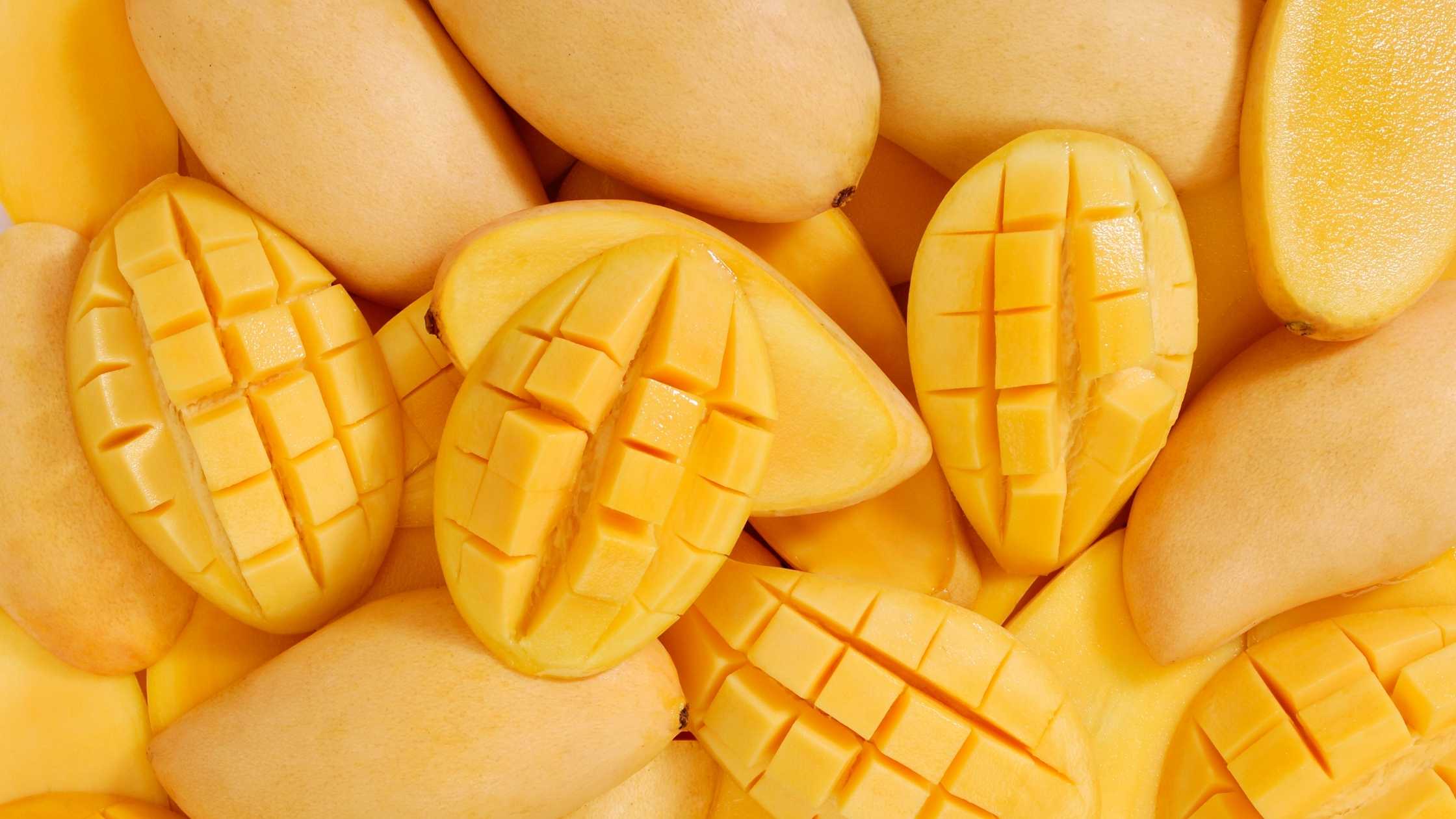
These are high in both amylase, a digestive enzyme, and dietary fiber. The amylase helps to break down starches while fiber helps against constipation.
Onions 
Another high fiber food (if you haven’t guessed by now, fiber is one of the keys to good gut health). As well as being high in certain nutrients and antioxidants, studies show that onions are high in quercetin which appears to be able to ward off H. pylori, a bacteria associated with stomach ulcers and digestive cancers.
Pears and Asia Pears
A fabulous source of fiber pears are also an anti-inflammatory food. Plus there’s some indication that including pears in your diet may help protect against stomach cancer.
Pineapple
A good food source of bromelain, another digestive enzyme. This enzyme however is specifically to breakdown proteins. So fresh pineapple can be an excellent tenderizer for meat. Eating pineapple can help make it easier for you to digest and absorb protein rich foods.
Potatoes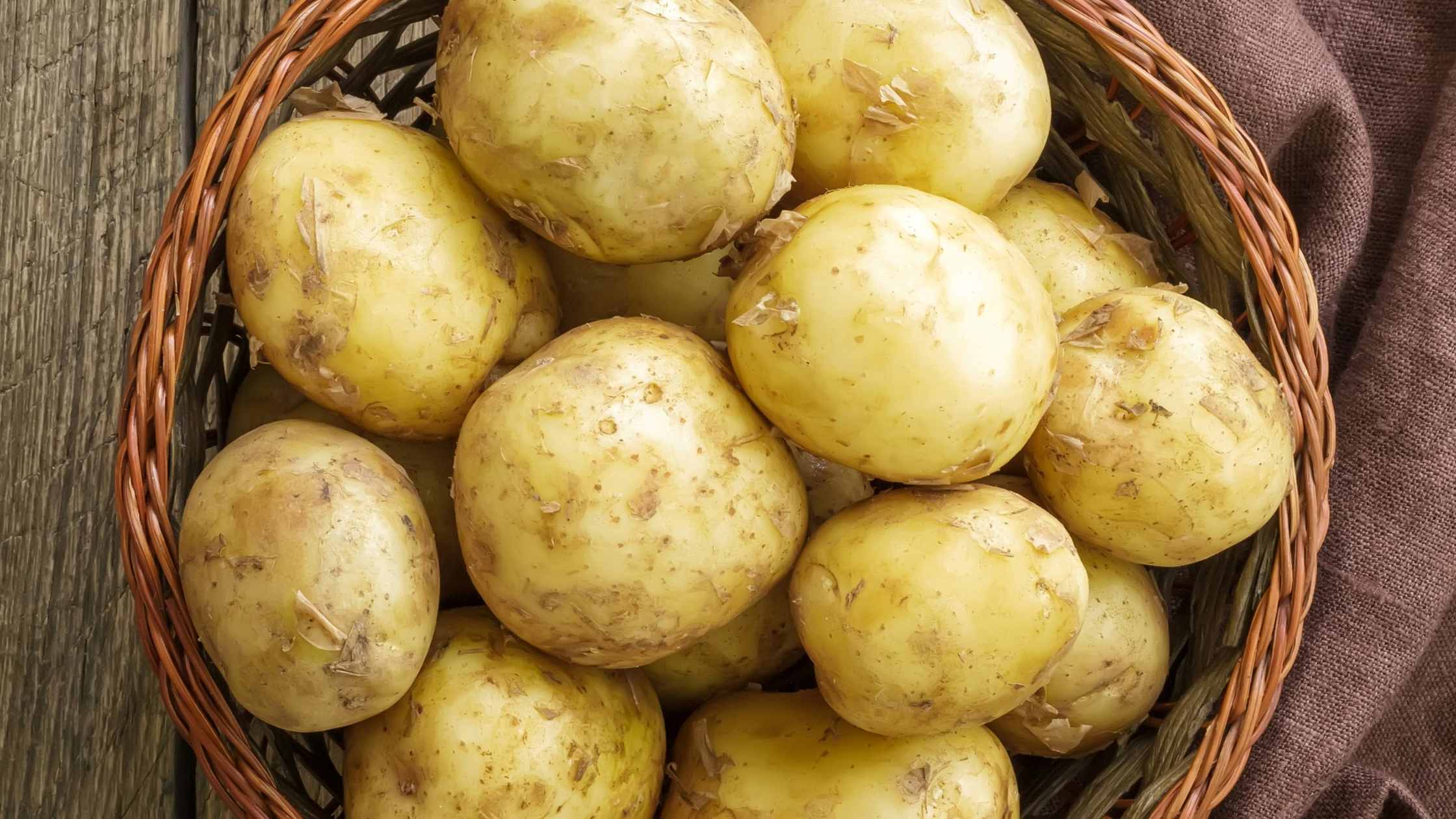
There are a number of health benefits to eating potatoes. Digestively once potatoes have been cooked and cooled they become a resistant starch. This is a carbohydrate which is highly supportive for the gut, acting like a prebiotic food for your healthy gut bacteria.
Yellow Squash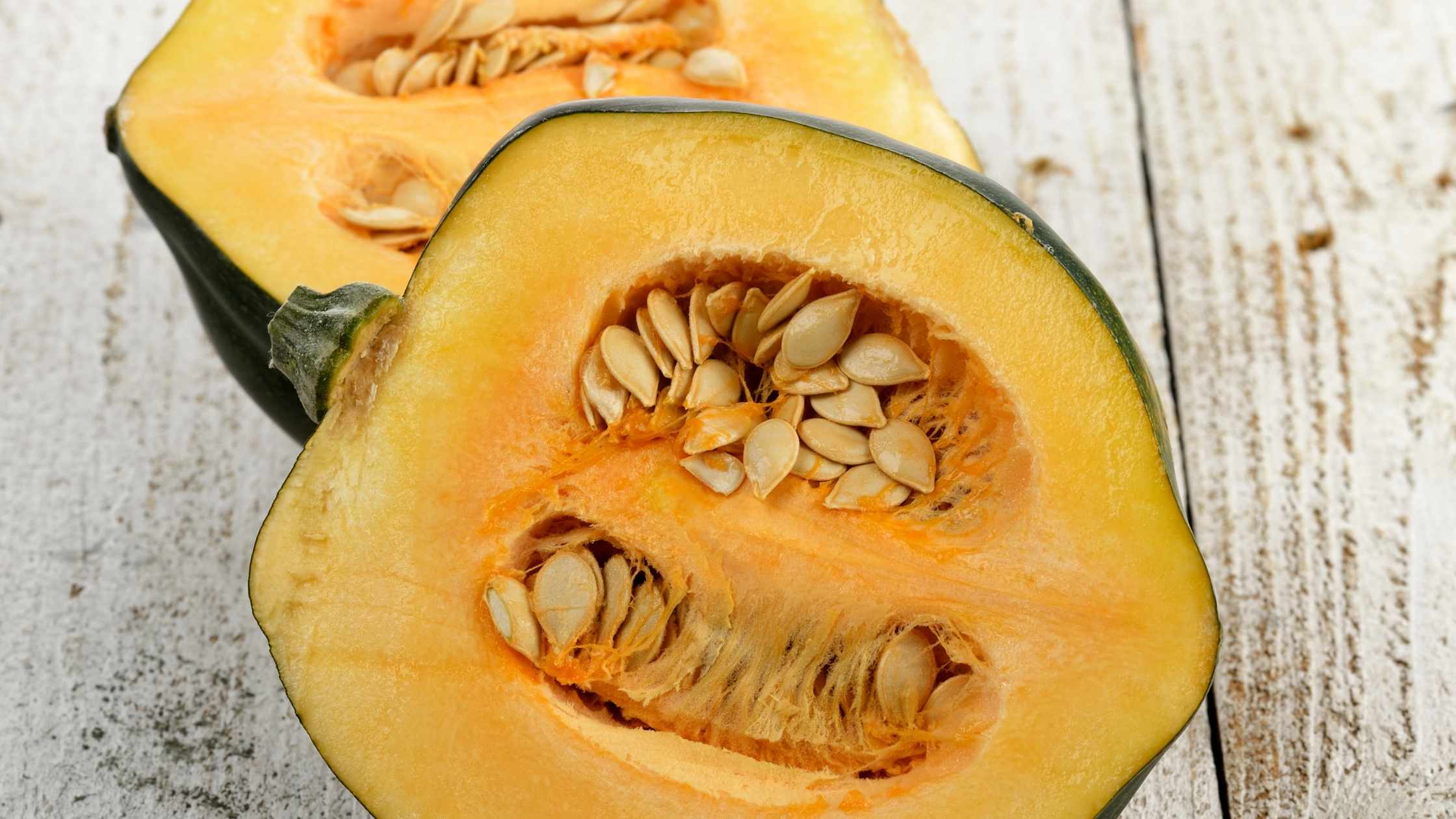
Sometimes referred to as Summer Squash. Highly nutritious with a good nutrient dense profile this vegetable is, you guessed it, another good source of fiber. And as a final point for fiber, getting enough of it in your diet can help ward off the potential for developing diverticulosis.
Add more yellow foods to your diet
There are a number of ways to add yellow foods to your diet. From dicing them into salads, adding them to soups, or blending them into a smoothie. Plus yellow foods can be used to make sauces, like curry, or condiments, such as mango salsa.
Remember that whenever possible it’s a good idea to choose locally sourced foods, not just the yellow ones, and to buy organic, especially for the Dirty Dozen.
The next time you’re out grocery shopping, or at the farmer’s market, remember to put yellow foods on your grocery list and give your gut a boost.
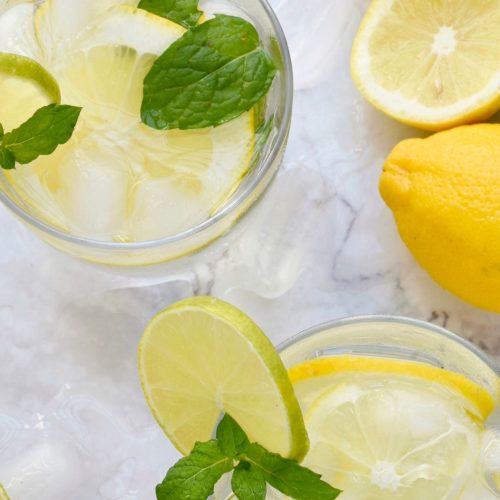
Blended Lemon Water
Ingredients
- 1 smooth skinned lemon (the less dimples the more juice)
- 2 cups water
Instructions
- Wash lemon and cut off ends
- Quarter lemon and remove pulp from peel
- Remove seeds from pulp
- Trim pith (the white part) from the skin to reduce bitterness
- Blend water, pulp, and peel together until fully combinedThis can then be used as a base for lemonade by adding 2 cups of water and a little maple syrup or honey to sweeten it. Or you can pour the liquid into ice cube trays and freeze. Then use for a refreshing lemony boost to a glass of water or iced tea.
Notes
[expand title="Sources"]
Ivyna de Araújo Rêgo, Renaly et al. "Flavonoids-Rich Plant Extracts Against Helicobacter Pylori Infection As Prevention To Gastric Cancer". Frontiers In Pharmacology, vol 13, 2022. Frontiers Media SA, doi:10.3389/fphar.2022.951125.
Hikisz, Pawel, and Joanna Bernasinska-Slomczewska. "Beneficial Properties Of Bromelain". Nutrients, vol 13, no. 12, 2021, p. 4313. MDPI AG, doi:10.3390/nu13124313.
Bottega, Roberta et al. "Anti-Inflammatory Properties Of A Proprietary Bromelain Extract (Bromeyal™) After In Vitro Simulated Gastrointestinal Digestion". International Journal Of Immunopathology And Pharmacology, vol 35, 2021, p. 205873842110346. SAGE Publications, doi:10.1177/20587384211034686.
Pham VT, Dold S, Rehman A, Bird JK, Steinert RE. Vitamins, the gut microbiome and gastrointestinal health in humans. Nutr Res. 2021 Nov;95:35-53. doi: 10.1016/j.nutres.2021.09.001. Epub 2021 Oct 21. PMID: 34798467.
Riboli E, Norat T. Epidemiologic evidence of the protective effect of fruit and vegetables on cancer risk. Am J Clin Nutr. 2003 Sep;78(3 Suppl):559S-569S. doi: 10.1093/ajcn/78.3.559S. PMID: 12936950.
Pascale, Nélida et al. "The Potential Of Pectins To Modulate The Human Gut Microbiota Evaluated By In Vitro Fermentation: A Systematic Review". Nutrients, vol 14, no. 17, 2022, p. 3629. MDPI AG, doi:10.3390/nu14173629. Accessed 8 Mar 2023.
"Turmeric Extract May Improve Irritable Bowel Syndrome Symptomology In Otherwise Healthy Adults: A Pilot Study | The Journal Of Alternative And Complementary Medicine". The Journal Of Alternative And Complementary Medicine, 2023, https://www.liebertpub.com/doi/abs/10.1089/acm.2004.10.1015. Accessed 8 Mar 2023.
Shinde, Tanvi et al. "Synbiotic Supplementation With Prebiotic Green Banana Resistant Starch And Probiotic Bacillus Coagulans Spores Ameliorates Gut Inflammation In Mouse Model Of Inflammatory Bowel Diseases". European Journal Of Nutrition, vol 59, no. 8, 2020, pp. 3669-3689. Springer Science And Business Media LLC, doi:10.1007/s00394-020-02200-9. Accessed 8 Mar 2023.
[/expand]

